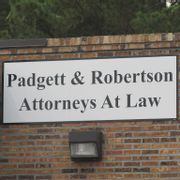4 FAQ About Bankruptcy in the Time of Coronavirus

The COVID-19 pandemic has thrown millions of Americans out of work as the country shuts down nonessential industry sectors, services, and travel in addition to schools and colleges. You may need to contact a bankruptcy lawyer if you’re facing mounting debts due to loss of income. Here are some common questions about bankruptcy stemming from coronavirus-related financial problems.
What You Need to Know About Filing for Bankruptcy in 2020
When should I consult an attorney?
If you’re facing financial hardship and significant debt, it’s smart to consult a bankruptcy lawyer. With representation, you can gain clarity about which debts can be erased and advice about getting back on track. The attorney will review your situation, help you understand the bankruptcy process, and communicate the advantages and disadvantages of filing for Chapter 7 or Chapter 13 protection.
How do Chapter 7 and Chapter 13 filings differ?
 Under Chapter 7, all unsecured debts—including credit card balances and medical bills—will be eliminated. Child support, student loans, and outstanding taxes will not be discharged, however. You may also be required to surrender possession of a car or home.
Under Chapter 7, all unsecured debts—including credit card balances and medical bills—will be eliminated. Child support, student loans, and outstanding taxes will not be discharged, however. You may also be required to surrender possession of a car or home.
When you file for Chapter 13 bankruptcy, you pledge to repay a portion of your debts over several years. The process halts foreclosure and repossession, allowing you to catch up with your financial obligations over time. If you have student loans, you can’t discharge them by filing for bankruptcy but you may be able to defer payment until you reestablish your financial standing.
How should I manage my debts before filing?
Communicate with your lenders if you can’t make a monthly car or mortgage payment. Although banks and lenders have the right to repossess or foreclose, neither is likely to take immediate action. Use the time to work with lenders and make your accounts current. At the same time, meet with a bankruptcy lawyer to ask about filing for protection.
Before you pay down credit card balances, apply your resources to keep the gas, electric, and water on. Contact your utility companies if you don’t have the money to pay a bill; they may have programs to assist you. Many, including Alabama Power, are suspending disconnections for nonpayment because of the pandemic.
What if I’m already in a bankruptcy proceeding?
Some courts are closed; others are operating with limited staff. Stay in communication with your attorney, who should have the latest updates about delays, rescheduled meetings, or call-in proceedings.
The lawyers at Padgett & Robertson, Attorneys at Law, have helped clients in Mobile and across southern Alabama evaluate their options and settle personal bankruptcy cases. Visit them online for information about how to get started with a bankruptcy filing, or call (251) 342-0264 to schedule a free consultation with a bankruptcy lawyer.
No representation is made that the quality of legal services to be performed is greater than the quality of legal services performed by other lawyers. We are a debt relief agency. We help people file for bankruptcy relief under the Bankruptcy Code.
About the Business
Have a question? Ask the experts!
Send your question

